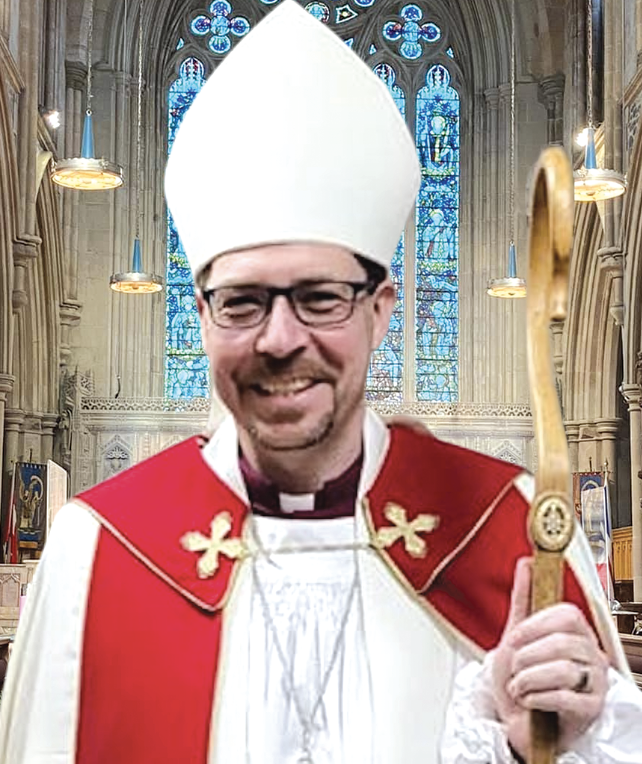The Lord is risen! The Lord is risen indeed! Alleluia! Alleluia! Alleluia!
The joy of this Easter message is perhaps more impactful for the Church today, especially after these past two years and multiple lockdowns. To hear the announcement of the heavy stone rolled away to reveal an empty tomb where new life bursts forth should give us real hope that no matter what we face (COVID-19 included), it does not have the final say in our lives.
Easter is a time when faith can be restored and renewed. There has been so much heaviness all around that it seems we have come out of a two-year-long Lent, not just these past forty days. So much has changed in our day-to-day lives that we need something constant and solid to help get us through. That is today, my friends.
The stone is rolled away. The tomb is empty, and Jesus is alive. Not only then but here and now and forever.
And the tomb was not opened for a few or for some, but everyone!
Yet, there is still a heavy stone for some, not put there by God, but left there by the Church. Last year, I watched an online prayer service from the Proud Anglicans of Huron Diocese group for Transgender Day of Visibility. It is a day of compassion and acceptance, helping to remind us that everyone is worthy of God’s love.
I also think of our First Nations relatives, the Church’s legacy of hurt and cultural genocide, and how much work is yet ahead towards reconciliation. Or those who are crying out for justice in poverty, care for creation, human trafficking, and sexual exploitation, and asking their church to become more vocal and active in addressing these and other vital issues.
They are not asking us to open their doors because they are already here, and are part of the Church. They want us to accept that reality. How much they must love Jesus—so much so that they stay in a Church that often does not understand them or, worse than that, excludes them.
Yet those attitudes of exclusion and unacceptance were the same attitudes that sent Jesus to the cross. And still, Jesus loves them. And when God raised Jesus from the dead, it was a sign of God’s radically inclusive love for all people.
Because the empty tomb of Easter signals not only Jesus’ resurrection but also our resurrection—our new life as Jesus’ followers—we no longer have to live with those heavy stones in our lives. We no longer have to live as if death will have the last word. We no longer have to live as if we are cut off from God. Faith replaces confusion and uncertainty. Grief turns to joy. Tears vanish from eyes open with amazement. Fear becomes confidence in God’s faithfulness and love.
The reality of Easter is that God is not held back by the things that hold us back from God. The Good News of Easter is that God creates new life out of death. This very day, some people endure heartache and suffering. Too many face a future that is lonely and hopeless. So many search for a purpose in life but feel like they are wandering in the wilderness. Many still find a massive heavy stone blocking them from experiencing the risen Christ.
The Good News for them and us is that our God moves heavy stones. For Mary Magdalene, the great stone of grief was moved by new life and hope. For Peter, the great stone of denial was moved by forgiveness. For Thomas, the great rock of doubt was moved by assurance. The heavy stone we experience, whatever it may be, will be rolled as well for you and me. And with God, may we help remove those barriers in our churches that block us from sharing the fullness of God’s love for everyone.
Remember, the tomb was not opened for a few or some, but everyone.
The stone was rolled away from the tomb, not to let Jesus out, but to let us in to see the heart of God, to show us that death is not the end, but rather a new beginning. A beginning that proclaims the victory of life over death and which allows us to turn our backs on the grave and face our future with faith and hope, confident that all of God’s promises will indeed bear fruit.
Easter is not so much a day, but a way. The “Easter Way” is our call to live as “Easter People.” The is a way of endless possibility. The way of the empty tomb and the risen Christ, which has, does and will continue to transform lives. A way that strives for love and inclusion and helps roll away heavy stones of indifference and unacceptance. An “Easter Way” that calls us to live lives of hope and joy.
The joy of Easter comes from this glorious reality: that the Lord is risen! The Lord is risen indeed! Alleluia! Alleluia! Alleluia!
I wish you all a blessed and holy Easter!
+ Samuel, Eastern Newfoundland & Labrador




